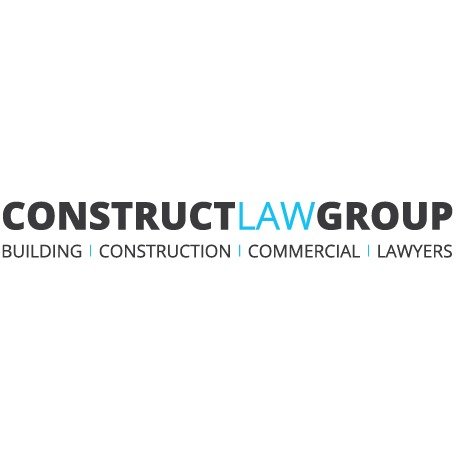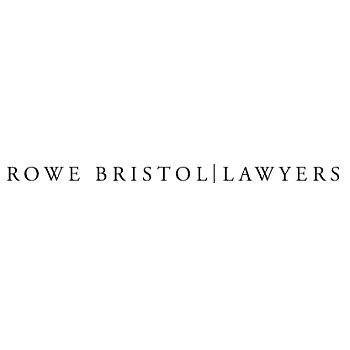Best Credit Repair Lawyers in Australia
Share your needs with us, get contacted by law firms.
Free. Takes 2 min.
Or refine your search by selecting a city:
List of the best lawyers in Australia
About Credit Repair Law in Australia
Credit repair in Australia involves the processes individuals can undertake to rectify errors and negative listings on their credit reports. The need for such measures has become more pronounced as credit scores increasingly influence access to loans and other financial products. The landscape for credit repair is governed by a range of consumer protection laws, including the National Consumer Credit Protection Act 2009 and the Privacy Act 1988, which delineate the rights of consumers and obligations of credit reporting bodies. Understanding these protections is crucial for individuals looking to improve their credit profiles.
Why You May Need a Lawyer
A lawyer specializing in credit repair can provide invaluable assistance in several scenarios:
- Errors or inaccuracies appearing in your credit report that you've been unable to rectify through standard channels.
- Being a victim of identity theft, which has affected your credit history adversely.
- Complex cases involving significant amounts of debt or where credit reporting bodies are unresponsive.
- Legal representation in disputes or negotiations with creditors or credit reporting agencies.
- Advice on navigating the legal landscape when deal hunters with credit repair companies promising unrealistic results or using unethical methods.
Local Laws Overview
Credit repair in Australia is largely shaped by federal laws aimed at protecting consumers' rights. Key pieces of legislation include:
- National Consumer Credit Protection Act 2009: Oversees lending practices, ensuring credit providers act responsibly.
- Privacy Act 1988: Regulates how personal information, including credit report data, can be handled and provides individuals with the right to access and correct their credit information.
- Australian Consumer Law: Provides consumer guarantees and fair trading entitlements, protecting consumers against misleading and deceptive conduct.
Frequently Asked Questions
What is a credit report?
A credit report is a detailed record of an individual's credit history prepared by credit reporting agencies, used by lenders to assess credit worthiness.
How can errors occur on a credit report?
Errors can result from inaccurate data entry, identity theft, or outdated information not being corrected by the reporting agencies.
Can I fix my credit report myself?
Yes, individuals can contact credit reporting agencies to dispute errors directly. However, complex cases may benefit from legal assistance.
How long do defaults remain on my credit file?
Defaults typically remain on a credit report for five years. However, this can vary depending on the nature of the default and any subsequent agreements.
Is it legal to use a credit repair company?
Yes, it is legal, but it's important to be aware of the services they offer and ensure they comply with Australian laws and regulations.
Will paying off debts remove them from my credit report?
Paying off a debt will be noted on your credit report, but the default itself can remain for up to five years.
Can a lawyer negotiate with creditors on my behalf?
Yes, lawyers can negotiate with creditors to potentially settle debts, reduce interest, or change the terms of repayment.
What should I do if I suspect identity theft?
If you suspect identity theft, contact the police, financial institutions, and credit report agencies immediately to report the matter.
How do I obtain a copy of my credit report in Australia?
Individuals are entitled to one free copy of their credit report each year from the credit reporting agencies. They can obtain it by applying online or requesting it in writing.
Can late payments affect my credit score?
Yes, late payments can negatively impact your credit score. It’s important to maintain timely payments to protect your credit rating.
Additional Resources
There are numerous resources and governmental bodies available to provide further assistance and information about credit repair:
- Australian Securities and Investments Commission (ASIC): Provides information on your rights and the laws regarding credit reporting.
- Office of the Australian Information Commissioner (OAIC): Offers guidance on privacy rights related to credit reports.
- Financial Rights Legal Centre: A community legal center offering telephone and online financial legal advice.
- MoneySmart: An ASIC resource providing free tools and resources for managing financial matters, including credit reporting.
Next Steps
If you find yourself in need of legal assistance in credit repair, consider the following steps:
- Document the Issue: Gather all relevant documents, including your credit report, correspondence with creditors, and any evidence of errors or disputes.
- Consult a Lawyer: Look for a lawyer who specializes in credit repair or consumer rights. Many offer free initial consultations to understand your case and provide guidance.
- Engage with Consumer Advocacy Groups: Organizations like the Financial Rights Legal Centre can provide additional help and resources.
- Monitor Your Credit Report Regularly: Keep track of your progress and ensure any corrections are accurately reflected on your credit report.
Lawzana helps you find the best lawyers and law firms in Australia through a curated and pre-screened list of qualified legal professionals. Our platform offers rankings and detailed profiles of attorneys and law firms, allowing you to compare based on practice areas, including Credit Repair, experience, and client feedback.
Each profile includes a description of the firm's areas of practice, client reviews, team members and partners, year of establishment, spoken languages, office locations, contact information, social media presence, and any published articles or resources. Most firms on our platform speak English and are experienced in both local and international legal matters.
Get a quote from top-rated law firms in Australia — quickly, securely, and without unnecessary hassle.
Disclaimer:
The information provided on this page is for general informational purposes only and does not constitute legal advice. While we strive to ensure the accuracy and relevance of the content, legal information may change over time, and interpretations of the law can vary. You should always consult with a qualified legal professional for advice specific to your situation.
We disclaim all liability for actions taken or not taken based on the content of this page. If you believe any information is incorrect or outdated, please contact us, and we will review and update it where appropriate.
Browse credit repair law firms by city in Australia
Refine your search by selecting a city.















